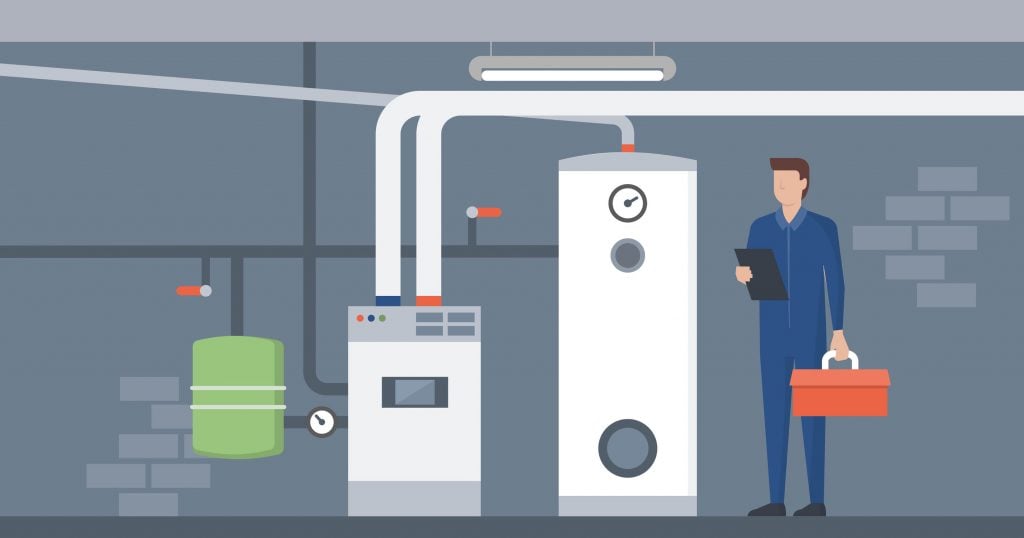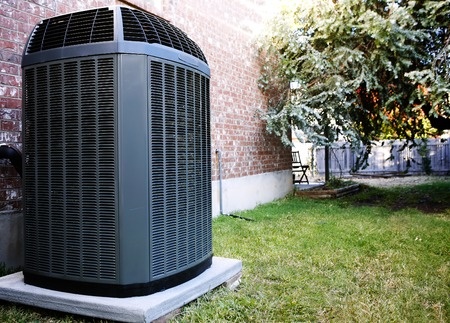When it comes to heating and cooling your home, there are two fuel types to choose from – electricity and gas. While both options have their pros and cons, we imagine you are most interested to know which one is the cheapest and most affordable for your home. Choosing whether to heat and cool your home with either gas heat vs electric heat can depend on so many factors.
Let’s first explain a little about common household electricity and gas. Households can purchase gas in two forms – natural gas, which is drawn from the mains gas network, and liquefied petroleum gas (LPG), which is delivered in large tanks that have to be replaced every now and again.
Natural gas is the more common of these two fuel options. Gas can be incredibly effective and affordable, however, it has limited utility and is only suitable for water heating, space heating, clothes drying and cooking. Electricity, on the other hand, has a lot more applications and can be used for all the above purposes and more. So while many homes do not have a natural gas connection, practically every home needs electricity. The question then is, should you stick with electricity only, or is it cheaper to opt for both electricity and gas?
Electricity Running Costs
Electricity customers are charged per kilowatt-hour (kWh) of electricity consumed. Households will also need to pay a ‘Daily Supply Charge’ to cover the distributor’s cost of transporting the electricity to your home. The rates you pay for electricity will depend on your state and distribution network. Daily Supply Charges are between 90 cents and $1.50 per day, again depending on the tariff. You need to pay supply charges regardless of how much power you actually use. For low-usage households, supply charges will make up a higher proportion of your overall costs. It’s vice versa is you are a high-usage household.
Natural Gas Running Costs
Natural gas customers are charged per megajoule (MJ) of natural gas consumed. Again, this is in addition to the fixed ‘Daily Supply Charge’, which is generally between 65-85 cents per day. Once again though, this varies considerably depending on your state and distribution network. Natural gas only costs a few cents per megajoule. It is common for gas tariffs to operate on a ‘block-rate’ basis whereby the rate increases incrementally as you use more gas.
Electricity Vs Gas Cost Comparison
So gas is the cheapest option, right? Well, yes, but that’s not the whole story. Sure, a megajoule of gas is considerably cheaper than a kilowatt-hour of electricity, but a kWh is also a lot more energy than an MJ. For example, a typical electric oven consumes about 2.3kWh of electricity, while a typical gas oven will use approximately 12MJ per hour.
Assuming an average electricity usage rate of 33c/kWh and an average gas rate of 4c/MJ, an electric oven will cost 76c per hour to run, while a gas oven will cost 48c per hour. Although that appears to be a negligible difference at face value, the savings of gas in this case could save you considerably over time.
Appliance Purchasing Costs
While gas appliances are cheaper to run, they are generally more expensive to purchase in the first place. For example, a brand-new electric oven will generally cost anywhere from $700 to $1,500 while a gas oven will set you back between $900 and $2,000. This means that the choice of electricity or gas is essentially a decision between whether you want to save money today or later down the road. If you are an avid cook or you like to blast the heater, then it may work out cheaper overall to install gas appliances, provided you have a natural gas connection. It is important to keep in mind that you will be paying two daily supply charges if you have both an electricity and natural gas connection. This means you should only opt for gas if you know that you will use enough so that the usage rate savings exceed the additional supply charge.
So, should you choose electricity or gas heating for your home?
Gas is cheaper than electricity, so provided you have a natural gas connection it will often work out cheaper to opt for gas over electricity wherever you can. However, if you only have electricity, then the choice between the two fuels becomes a little less clear. If a gas connection is available and you can afford to spend a little more on gas furnaces and HVAC, then switching to gas could potentially save you money in the long term – provided you use enough of it to justify your investment. Since it will take time for gas savings to justify the installation cost, then it isn’t recommended for customers who don’t plan on remaining at the same property long. Ultimately, the decision between electricity and gas comes down to your personal circumstance.
Furnace Repair & Installation in Canton, GA
If you are looking to install a new electric or gas furnace in your home, Fritts Heat & Air can do it all. We specialize in the installation of heating systems of any type for your home or workspace.
At Fritts Heat & Air, we’re not comfortable until you are. That means keeping you warm during the winter months and providing you with prompt and professional heating repair services when you need us. We repair all brands of residential and commercial heating systems. Let us keep your home or business warm with our expert heating repair services.
Call us at (678) 327-3897 or contact us online here for quick heating repair in the north Metro Atlanta area.



